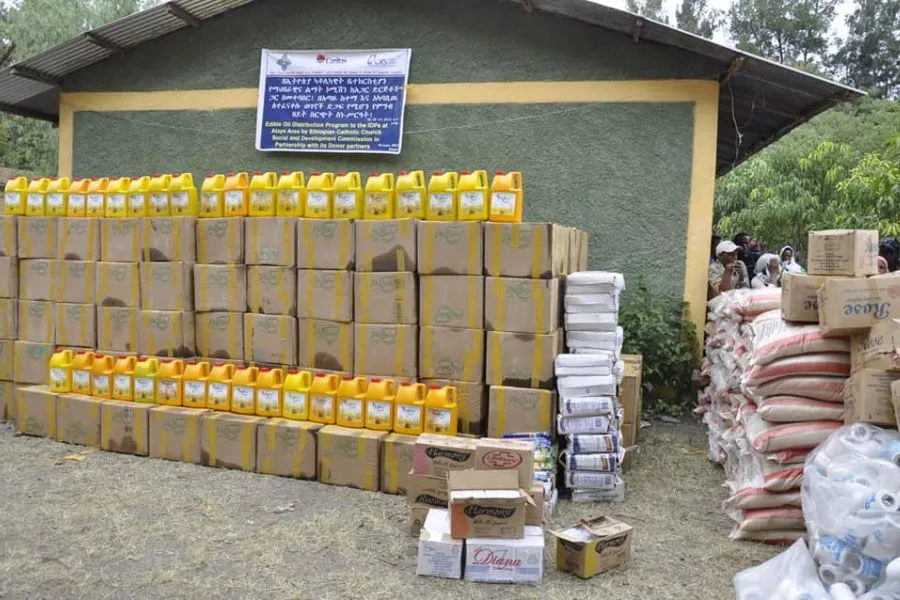Adigrat, 25 June, 2023 / 9:45 pm (ACI Africa).
Bishop Tesfaselassie Medhin of Ethiopia’s Adigrat Eparchy has decried the suspension of food aid in the Horn of Africa country, describing the move as “a death sentence” on a people struggling to remain alive.
On June 9, World Food Programme (WFP) announced the move to suspend food aid to Ethiopia claiming that the “donations were being diverted from people in need.” A day earlier, the U.S. Agency for International Development (USAID) had made a similar announcement.
In a statement ACI Africa obtained Sunday, June 25, Bishop Medhin who also describes the food aid suspension as “inhuman” underscores the need to have in pace an alternative to the announced suspension in order to save lives.
“Today hundreds are actually dying of starvation because food aid has stopped for months and months,” the Ethiopian Catholic Bishop laments, and adds, “This cannot be the price to pay to fix the system.”
He continues, “While the diversion and theft of food supplies that have taken place from reaching the population in dire need in Tigray and in other parts of Ethiopia is totally unacceptable and inhuman, I want to call upon the decision makers to consider our shared humanity and beg them not to pronounce a death sentence upon those trying to survive in the wake of a terrible armed conflict, those who are dying now.”








